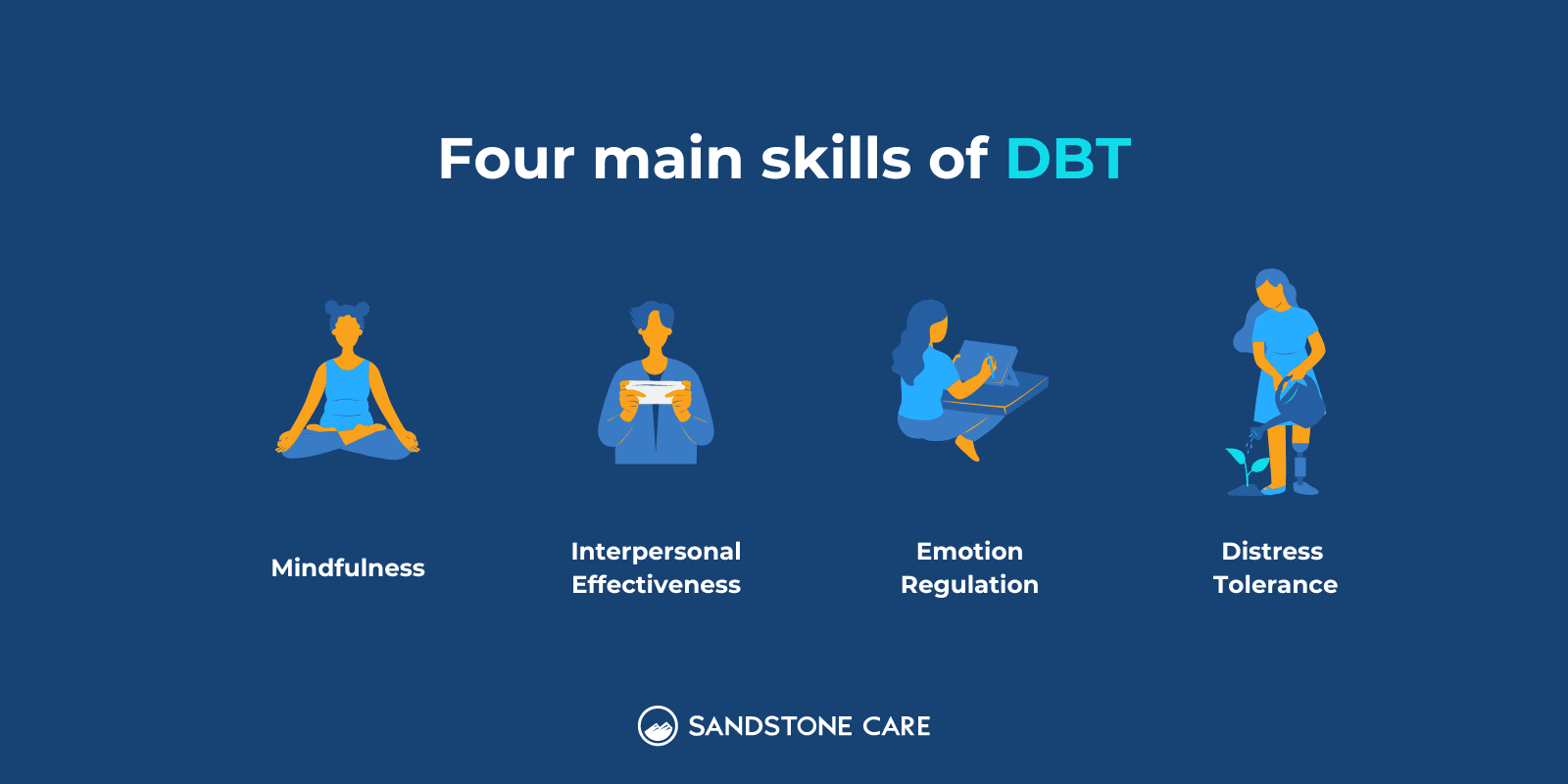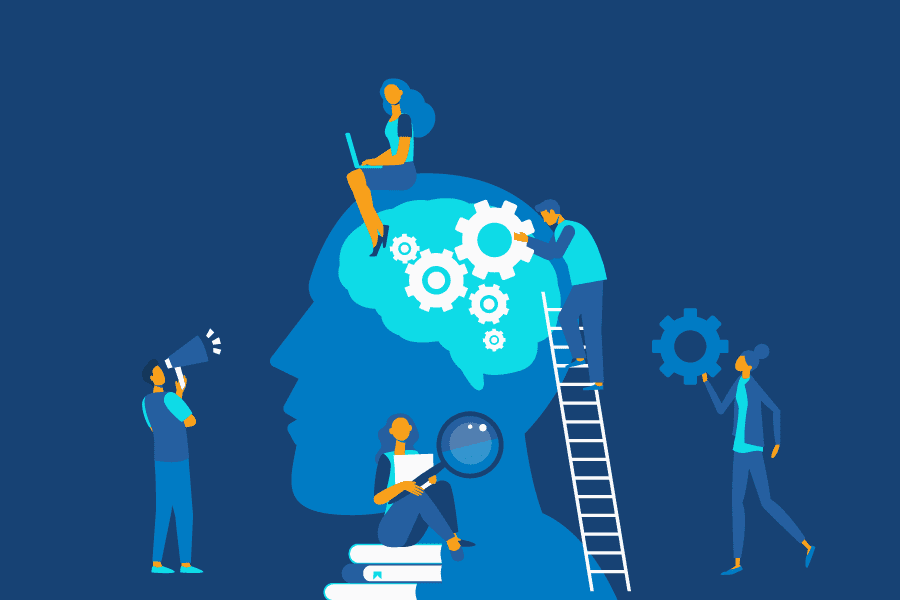What is Dialectical Behavioral Therapy?
DBT, or Dialectical Behavioral Therapy is a type of psychotherapy that grew out of the principles of cognitive-behavioral therapy (CBT). While CBT focuses mostly on needing to change behaviors, DBT focuses on validation, acceptance, and dialectics.
Dialectics is an expansion of validation, and includes the idea that all things are connected and that change is constant in life. It is also the belief that opposite forces can be brought together in order to create a balance.
How is DBT Helpful in Drug & Alcohol Addiction Recovery?
DBT has been shown to be helpful in a variety of situations and has been used to treat many different mental health conditions including eating disorders, bipolar disorder, anxiety, depression, post-traumatic stress disorder, and substance use disorders.
While DBT has a number of similarities with CBT, dialectical behavioral therapy includes a level of optimism that is not found in traditional CBT. DBT assumes a few different things:
- People are doing the best that they possibly can in their current situation
- Problems are not always one person’s fault, but it is their duty to try to resolve it
- People want their situation to improve
- Everyone is capable of learning new behaviors that will improve and change their lives.
By making these assumptions and holding the belief that unwanted thoughts and behaviors are learned and reinforced, DBT works to unlearn these thoughts and behavior patterns through a number of exercises and coping skills.

Treating Drug & Alcohol Addiction with DBT Methods & Principles
There are several methods of change that DBT employs in order to treat drug & alcohol addiction, all of them with the same goal: Equip clients with tools so that they are able to develop a healthier mindset.
Dr. Marsha M Linehan, one of the developers of DBT, had the ultimate goal of aiding patients in their efforts to build a life worth living. The basic premise for practicing DBT is that people who are exhibiting self-destructive behaviors and tendencies (substance use, self-harm, eating disorders, etc) do not have the skills
to be able to solve the problems that were leading to their behaviors. By replacing those behaviors with skills that have proven to be productive and promote positive change, destructive behaviors will decrease.
Dialectical Behavioral Therapy Skills & Tools
While every individual responds differently, there is a large variety of therapeutic tools that have proven to be helpful for individuals who are struggling with substance abuse and co-occurring mental health disorders.

Distress Tolerance
Everyone experiences a crisis in their lives at one point or another. Some may be large and life-altering, while others are smaller and only affect the current situation. When people experience distress, the immediate desire is to get rid of that feeling. Individuals in recovery experience that desire as well, but the way that they get rid of stress may be by using a substance or acting in an unhealthy and destructive way. Distress tolerance teaches individuals how to reach a more manageable emotional place, and how to tolerate and accept their current distress rather than seeking out a way to escape from it.
Emotional Regulation
Emotions are a normal and every day part of life, but it’s important to understand that there is a different between having emotions and being controlled by them. Emotional regulation is the practice of learning how to manage overwhelming or unwanted feelings. It includes working to understand one’s own emotions, reducing emotionally vulnerability, and decreasing emotional suffering.
Mindfulness
Mindfulness is a word we hear a lot, but do we understand what it truly means? In DBT practices, mindfulness means being completely aware and engaged in one’s current environment and situation. For individuals with substance use and mental health disorders, it can be difficult to stay present in the moment without thinking about the past, worrying about the future, or distracting themselves. Mindfulness means being able to be fully immersed in the moment, while taking an unbiased and impartial stance on their thoughts and feelings.
Interpersonal Effectiveness
When we lack conflict resolution and communication skills, every part of our life is impacted, and our problems tend to grow. Interpersonal effectiveness helps to balance priorities versus the demands, and nurture our relationships. By having positive and effective communication with others, we are able to live happier and more fulfilling lives thought our interactions with others.
The Goals of DBT
There are four main goals for individuals participating in dialectical behavioral therapy. They include the following
1. Transitioning from out of control, to in control
This step aims to help the individual reduce reckless and dangerous behaviors like drug use and self-harm. This is accomplished by discovering skills that will improve relationships, manage stress, and aid in understanding emotions.
2. Moving from emotional unavailability to emotional regulation and engagement
When emotions are too overwhelming or difficult to manage, people tend to shut down and not acknowledge or deal with them. The goal here is to accurately and full experience emotions by relying on unhealthy coping skills.
3. Build a healthy life and solve every-day problems
Instead of targeting extreme symptoms first, the third goal includes focusing on the less intense ones in order to create stability in life. These things may include relationship conflicts, life goals and mild mental health symptoms.
4. Transition from feeling incomplete to feeling connected and complete
While the first three steps focus on reducing unwanted symptoms, the goal of the final step is to accept these emotions and to work towards a happy and full life in the future.
How Sandstone Care Utilizes DBT
Sandstone Care believes in and provides a full continuum of care. DBT skills like emotional regulation are used at all of our facilities and in all our levels of care, starting with medical detox. Our licensed and trained therapists employ these skills in order to ensure that each client’s needs are being met.
If you or someone you know would benefit from substance abuse and mental health treatment, consider reaching out to our caring and knowledgable admissions team for more information about our programs and resources.







